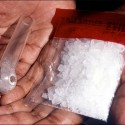Chronic Drinking Causes More Liver Damage Than Binge Drinking
A new study conducted on rodents has shown the extreme harm caused by chronic drinking on the liver, much more than the injury caused by binge drinking.
Although alcohol consumption is known to cause liver damage, still the degree of liver damage can differ according to the pattern of drinking
“Different patterns of drinking can] produce a different set or pattern of gene expression by the liver because of adaptation by the liver which occurs when the same level of blood alcohol is repeated over and over again,” explained Samuel W. French, Distinguished Professor of pathology at the UCLA School of Medicine.
He added: “Unfortunately, these adaptive changes in gene expression are injurious to the liver and are furthermore persistent in the liver even when alcohol drinking has stopped.
“This is why people who develop liver disease after chronic alcohol abuse continue to be sick from liver damage for many months after they have stopped drinking. In fact, they actually get worse when they stop drinking because their liver is programmed epigenetically to work under the influence of alcohol. Think of it as deleterious conditioning and a learning process for the liver.”
“Rodents do differ from humans in some of their responses to alcohol because they are rodents, not humans,” said Terrence M. Donohue, Jr., a research scientist in the Liver Study Unit at the Department of Veterans Affairs Medical Center and the University of Nebraska Medical Center.
“However, overall these results could potentially be applicable to humans and it’s likely that they are, as both rodents and humans are mammals,” the reserarcher said.
For the study, the researchers used microarray analysis on livers from rats that had been fed an acute/binge dose of alcohol (6 g/kg body weight), enough to intoxicate the animals, and then sacrificed at three and 12 hours after dosage.
Then they compared the gene microarrays to those from an earlier study of livers from rats that had been fed alcohol for one month (comprising 36 percent of their calories), the equivalent of chronic drinking.
Results showed that chronic exposure to alcohol leads to more gene-expression changes in the liver than does acute exposure to alcohol.
“The liver damage in the two groups was different. For instance, after chronic abuse the liver cells become swollen and filled with fat stores, some liver cells died and cells in the liver that make scars are activated. These changes do not occur in the liver after an acute or binge dose, as demonstrated by gene expression,” said French.
He claimed the findings suggest that daily, excessive drinking can program the liver to become dependent on alcohol.
“So when a person stops drinking, their liver will continue to be sick for a while; but if they don’t stop drinking, their liver will become even sicker,” said French.
Results will be published in the April issue of Alcoholism: Clinical and Experimental Research and are currently available at Early View.
source: Medindia
